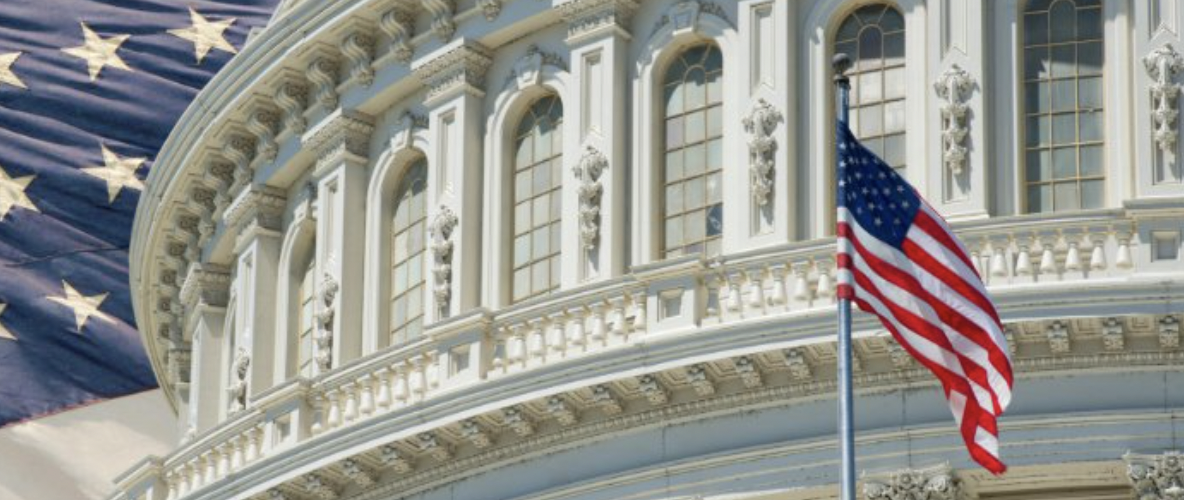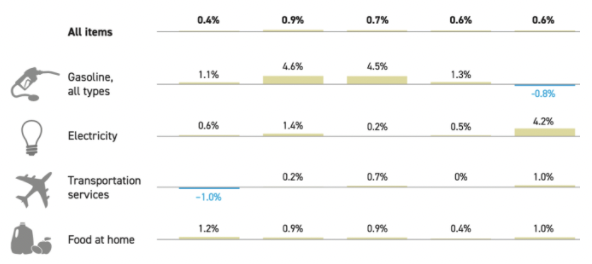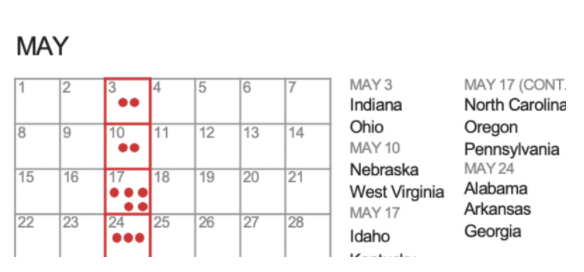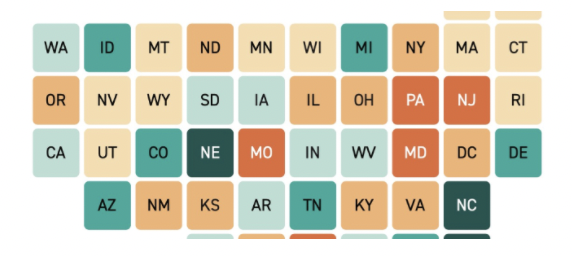Latest news from Washington, D.C. produced by Total Spectrum/SGA exclusively for members of the Arizona Chamber of Commerce & Industry
More Info: Michael DiMaria | Partner and Vice President of Business Development | 602-717-3891 | [email protected]

Thanks for your interest in Washington, and thanks for reading This Week in Washington.
Congress is on their Easter in-state work period. Staff has been preparing throughout this recess for what must get done during the balance of the year and before the November elections. Patrick Robertson has written an excellent article on that subject, highlighting the internal frustrations among Democrats and the choices that Democratic leadership will need to make very soon.
Now I want to make a REALLY SPECIAL announcement.
We started Total Spectrum Spotlight in the fall of 2020 so we could highlight for you news makers, news shapers, and people who fairly interpret the news. We overcame COVID, the work restrictions placed on us during the pandemic, we ironed out the wrinkles that are bound to be in any new product – and we produced some very good short interviews.
Now it is time to take Total Spectrum Spotlight to the next level, so I am very pleased to announce Total Spectrum Spotlight 2.0.
Congressman Erik Paulsen will continue to bring you timely and topical discussions with both national leaders and individuals who can help us understand the news. But you’ll see and hear the difference immediately, as we are now partnering with Big Whig Media in Washington, D.C. to really sharpen the final product we deliver to you, our viewers.
The first interview in Spotlight 2.0 will be with Kevin Hassett, who was the Chairman of the Council of Economic Advisors in the Trump Administration. Dr. Hassett was the economic advisor to President George W. Bush’s 2004 campaign, Senator John McCain’s 2008 Presidential campaign, and Mitt Romney’s 2012 Presidential campaign. He is currently the Distinguished Visiting Scholar at the Hoover Institution.
The second interview in Spotlight 2.0 will be with Charlie Cook, the founder of The Cook Political Report. Charlie Cook is widely considered to be one of the nation’s most respected and influential analysts of American politics, elections, and political trends. The Wall Street Journal even called him “the Picasso of election analysis.” Charlie is now a contributor to The Cook Political Report with Amy Walter and is a political analyst with National Journal.
We’ll let you know the date for the release of the first two interviews in Total Spectrum Spotlight 2.0. I am absolutely sure you will find them both interesting and enjoyable.
As always, thanks again for your interest in Washington, D.C. We’ll be back in two weeks with the next issue of This Week. Stay well.

Total Spectrum Managing Director
Washington Whispers
By Patrick Robertson, Total Spectrum Managing Partner
Congress has left town for its traditional spring recess to celebrate Easter, Passover, Ramadan, or another spring holiday of their choosing. Before they left, the Senate confirmed Judge Ketanji Brown Jackson as an Associate Justice of the Supreme Court, the House passed relief for restaurants and other small businesses, and a few other odds and ends. Congress also appointed almost 100 conferees to a conference committee that will resolve the differences between the House and the Senate versions of the China competition bill.
But Congress still has not moved forward on a reconciliation bill to replace the Build Back Better proposal.
Much of President Biden’s approval problems can be traced back to the expectations the White House set for trillions in spending on liberal priorities on top of trillions more spent on the pandemic. The President did nominate and move a liberal Supreme Court Justice through the Senate – albeit with a lot of threats and promises about the next potential nominee – and some of the President’s agenda has moved through the House of Representatives. But it’s fair to say that many Americans look at what was promised and then look what has been delivered, and are greatly disappointed. The President’s approval is as low as 35% over large swaths of the country.
There is also historically high inflation, high gasoline prices, seemingly perpetual issues at the southern border, continued friction on COVID policies, and the regular wedge issues that crop up in the mid to late stages of an election year.
Some experts will tell you that Congress has finished legislating for the year because paralysis will kick in as we approach the November elections. These observers point to historic precedent along with the strong predilection of this Congress toward inaction on bipartisan issues. Maybe they will be proven right.
But there are many others who believe that Congress has no choice but to act. They hold that Congress should act on domestic energy, climate change, the China competition bill, even on social programs. Act on anything they can get done.
Those who hold this view believe that Democrats – as they now stand – will lose in November. They contend that Democrats don’t have a cohesive message, and if they don’t do anything else and don’t have anything to run on, voters will say no to Democrats in November.
Some Democrats say that President Biden and Congress cannot afford to do any more, because what they have done has gotten them stuck in this spot. Other Democrats say that if they don’t do more they will lose in November – so by all means they should do more to energize their base and deliver on some long unfulfilled promises while they have control over both Houses of Congress and the Administration. It’s true that this path is fraught with peril and difficulty, but it still may be the path Democrats take to change the election dynamics heading into the fall.
There is some good news for Democrats. Political pundits from both parties widely agree that Democrats have outperformed expectations on redistricting and Republicans have underperformed expectations in recruiting. Either one or both could help Democrats retain control of at least the Senate and keep the House close. If they can get some enthusiasm going, they may just give themselves a chance.
Enthusiasm would start if they could get a reconciliation bill moving in the Senate. But a path to a reconciliation bill has been blocked all along by Senators Joe Manchin (D-WV) and Kyrsten Sinema (D-AZ), with Senator Manchin saying he can no longer support the social programs and Senator Sinema saying she cannot support corporate and individual tax rate increases.
Senator Manchin has honed his message recently, saying that he wants climate policy, domestic energy production incentives, and a fix in the tax code in a reconciliation bill. This would leave out social programs but could be a path to a deal. Senator Sinema has said she is in the same place on taxes as she was last year – no personal or business rate increases.
There are 48 liberal Democrats in the Senate who have all but said they would vote for pretty much anything the Senate can move with 50 votes. Only time will tell if Democrats can square the circle. We still have many days to go until the election, but very few days for Democrats to decide how they want to move forward between now and then.
Congressional Calendar
All times ET
Wednesday, April 20
- ·12:00 p.m. House Financial Services Subcommittee on Housing, Communication, Development and Insurance hearing: A Matter of Life and Death: Improving Fire Safety in Federally Assisted Housing.
Thursday, April 21
- 10:00 a.m. House Oversight and Reform Subcommittee on Government Operations hearing – IRS Readiness.
- 11:00 a.m. House Science Space, and Technology Subcommittee on Investigations and Oversight hearing – Electric Vehicle Batteries/Critical Minerals Supply.


















Add comment